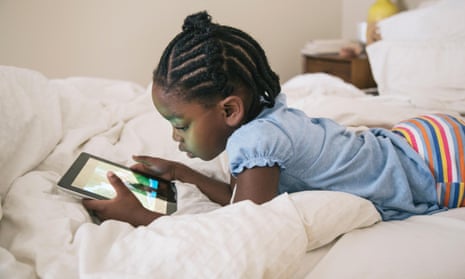Pop-up advertising designed to be hard to close; in-game characters showing disapproval if you don’t make in-app purchases; ads with Donald Trump pressing a “nuke” button. None of these things should be appearing in children’s apps, but they were all found by researchers at the University of Michigan Medical School in a recent study of 135 apps “marketed to or played by” children under five years old.
It’s a long way from 2010, shortly after Apple’s iPad launched, when dozens of children’s app developers sprang up, hoping to meet the anticipated demand from parents for high-quality, educational and entertaining apps. Which they’d happily pay for.
How did we get from there to here? Some 129 of the apps tested by the Michigan researchers featured advertising, including “high rates of mobile advertising through manipulative and disruptive methods”.
The difficult answer is that parents are partly responsible, because that anticipated demand failed to materialise. “Most parents just don’t buy apps: they or their children are just downloading these free games,” says Chris O’Shea, a British developer who releases apps under the brand of Cowly Owl. His apps are creative and playful, with no ads or in-app purchases, yet sales are slow.
“It’s definitely a tougher market now: it feels like an uphill battle in this ‘paid apps’ space,” he says. “Is there a long term in making premium kids’ mobile games? I don’t know that there is.” British books publisher Nosy Crow is another dispiriting case study. Its series of apps based on fairytales won awards and critical acclaim (among them the Fairytales Bundle, below), yet earlier this year the company laid off its apps team and pulled out of the market. “It was gutting. The failure of our apps business remains one of the most dispiriting things of my professional life,” says Kate Wilson, Nosy Crow’s managing director. “We thought parents would be happy to buy and own apps like they did physical products. But they didn’t. ”
Nosy Crow at least had a thriving book publishing business to focus on. Wilson points out that according to research firm Nielsen, children’s book sales in the UK have grown by 23% over the last five years: “The decline in app sales has absolutely mapped the rise of print sales.”
Parents still value books for their children, then, yet there is seemingly less willingness to pay for digital products – despite a concern that the makers of those products are making money in other ways, such as advertising.
“People want everything for free! And then they want it to not be monetised,” says Martin Pope, producer and joint managing director at Magic Light Pictures, which has made animated films and apps based on The Gruffalo, among other projects. Rather than pay for children’s apps, a lot of parents simply download (or leave their children to download) free games, many of which are making money from ads and in-app purchases, and did not implement those features with children in mind.
“[Some] games developers and publishers didn’t care because they thought no one was ever going to scrutinise what they were doing. They just plugged in a bunch of adult advertising and thought it wouldn’t matter,” says Dylan Collins, chief executive of SuperAwesome.
His company makes technology to help brands, websites and app developers whose products are being used by children, including tools to ensure their personal data is not collected, as well as serving up advertising appropriate for children.
“A lot of these smaller games developers were doing things they shouldn’t have been and they’re all caught in the headlights now, because scrutiny of these practices is everywhere,” he says.
That’s reflected in the University of Michigan study and others. Earlier this year, researchers at the University of California, Berkeley, found that more than half of 5,855 popular free children’s apps were sharing personal data of their players with other companies – via advertising – in ways that should fall foul of US laws on children’s privacy online.
Collins thinks these studies and the resulting media coverage are signs that bad practices will be punished. App developers hope the publicity will encourage parents to pay more attention to the free apps that their children are using. O’Shea points out that both Apple and Google’s app stores have sections for children.
“Most games that are being played by kids aren’t in those categories, because they have stricter rules on ad-tracking and privacy,” he says.
Collins thinks that Apple and Google, among other tech companies whose services are being used by children, could do more. “I will believe they are taking this seriously when I see a chief children’s officer appointed at all the tech companies, with a global remit to connect up all of their child-safety initiatives,” he says.
“Bizarrely, the most vulnerable, most sensitive audience is using all these platforms with the greatest volume and velocity, yet no one is creating organisational structures to make sure that they’re safe.”

Comments (…)
Sign in or create your Guardian account to join the discussion